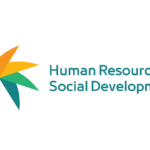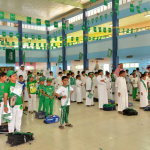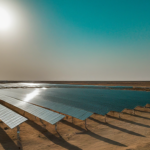
“Education in the Kingdom today does not focus solely on knowledge. Through the establishment of the National Curriculum Center, the curriculum has evolved to be both knowledge-based and skill-oriented, with a focus on values. Education stresses enhancing skills from early childhood (ages 3-6), aiming to create an innovative and competitive generation by 2030, aligned with the labor market in the public, private, and nonprofit sectors.” Minister of Education Yousef bin Abdullah Al-Benyan, Education Minister at Misk Global Forum: Values are the Foundation of Education Success [Saudi Press Agency]

“Saudi Minister of Commerce Dr. Majed Al-Qasabi issued a decision banning the commercial use of symbols and logos of countries, as well as religious and sectarian symbols and logos. This is aimed at preventing the abuse or misuse of these symbols and logos. The ministry had previously announced the ban on using Saudi Arabia’s flag, which includes the name of God, the word of monotheism, the state emblem (the two swords and the palm tree), and pictures of the leadership and officials and their names in commercial transactions, including “printed materials, goods and products, media bulletins, special gifts, and others.”” Saudi Arabia bans commercial use of symbols and logos of other countries [Zawya]

“We’re already at that stage where projects are being prioritized. So I think we’ve already reached that… This includes focusing on more viable projects or those linked to key events such as the Asian Games or the stadium. The move to manage costs, extend timeframes and prioritize projects is being seen as a welcome development.” Monica Malik, chief economist at ADCB, Saudi Arabia prioritizes sports for NEOM plans as costs balloon, sources say [Reuters]

“Since its establishment in 2015, KSrelief has carried out 3,105 projects in 104 countries, totaling more than $7.1 billion in value. These projects span various vital sectors, with Yemen receiving the largest share—63.12 percent of the center’s total aid—amounting to over $4.5 billion.” Dr. Al-Rabeeah: 170 countries benefited from $133 billion aid from Saudi Arabia [Saudi Gazette]

“We started on the project in Saudi Arabia and our green hydrogen projects in 2017, our project is going to come on stream in 2027, so it’s taken 10 years. It’s a long process.” Seifi Ghasemi, CEO, Air Products, Air Products in talks for more NEOM offtake [Gas World]

“Screen growth in the Middle East has overtaken the rest of the world, with approximately 1,000 new screens added since 2019. By the close of 2024, the region is expected to reach nearly 2,500 screens, reflecting the rising demand for cinematic experiences across MENA, driven primarily by Saudi Arabia. Saudi Arabia is set to lead the MENA region in screen count by year-end, reaching 803 screens, followed by the UAE with 734.” Omdia Forecast: MENA cinema poised for growth projected to reach $1.5 billion and video streaming to $2.9 billion in 2029 [Satnews]

“China is the largest source of outbound tourists globally, home to over 400 million individuals with substantial disposable income. According to Skift reporting, Chinese travelers took 155 million trips abroad in 2019, spending nearly $255 billion — 14 percent of global tourism revenue. The total number of outbound trips from China is expected to exceed 365 million by 2030.” Saudi Arabia Eyes Major Slice of China’s Tourism Market [Skift]

“Millions of students are currently enjoying a vacation at the end of the first semester, which runs through November 17. The holiday, which began on Thursday, has given a significant boost to the hotel business in Riyadh, where an annual entertainment and tourist festival is underway. Room costs have reached SR7,000 per night, especially at five-star hotels in central Riyadh, according to the Saudi news portal Sabq, citing booking websites. Occupancy rates at some central Riyadh hotels and those near the airport have reached 100%, while overall citywide occupancy is at 76%.” School break sets price records for Riyadh hotels [Gulf News]

“The Kingdom’s women workforce is expanding in unprecedented ways. According to the Ministry of Finance, female labor participation has reached 35%—well above the original Vision 2030 target of 30%. This marks a stark economic shift. Yet, despite this progress, deep-rooted structural barriers and societal resistance persist. Female inclusion is still largely concentrated in caregiving and education—sectors prioritized by nationalization policies—which restricts their wider economic involvement. Going forward, the key question is whether Saudi Arabia can overcome these social hurdles while sustaining its rapid economic momentum.” Sumaiya Al-Wahaibi, Saudi women at work: progress and obstacles [Amwaj]

“As things stand today, there are hardly any major customers who buy green hydrogen. That’s why we have to step on the brakes a little.” Michael Lewis, CEO of German utility Uniper, Saudi Arabia Bets $10B on Green Hydrogen [Oilprice.com]











